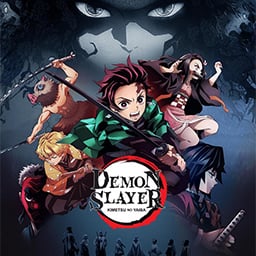Otaku Culture Worldwide and Vocaloid
Otaku culture is a Japanese subculture that emerged around 1980. It is one of the largest and most diverse subcultures in Japan. Those who participate in this culture are known as otaku, people with obsessive interests, particularly anime and manga.
Some publications categorize otaku into distinct groups such as anime, manga, idol, electronics, or car otaku. Within these groups, there may be subgroups. For example, Vocaloid otakus are part of the idol group.
Otaku culture around the world
Otaku culture began to spread worldwide thanks to popular anime series like One Piece, Dragon Ball, Naruto, and Bleach, turning what began as a niche culture in the West into a major phenomenon.
Nowadays, there are thousands of anime conventions and millions of fans worldwide who are interested in all sorts of aspects of Japanese pop culture like anime, manga, idols, etc. This has made the anime industry in North America worth $2.74 billion, twice the value of their comic book industry ($1.03 billion).
Otaku and Vocaloid culture in the west
The Vocaloid phenomenon began in Japan around 2007, and it didn't take long for it to spread to the rest of the world, with Hatsune Miku at the center. One of the most famous videos that helped popularize it is one in which Hatsune Miku holds a Welsh onion and sings the Finnish song "Ievan Polkka."
Even today, Vocaloid is a major phenomenon in the West. One of the largest Vocaloid-related events in the world is the HATSUNE MIKU EXPO, a worldwide concert tour organized by Crypton Future Media and dedicated to Hatsune Miku.
Vocaloid otaku are a subgroup of otaku idols, and concerts aimed at this type of audience are generally different. Light sticks and chants are a fundamental element of idol concerts. At these concerts, the audience sings together and shakes their light sticks to the music to show their enthusiasm for their idols.
East meets West
Vocaloid fans around the world celebrate their passion for Vocaloid by participating in international events. Language barriers can pose a problem for communication, but generally, Japanese fans who attend events abroad want to learn English and other foreign languages, while English fans want to learn more about Japan and its culture.
Following the major events sponsored by Crypton Future Media, many attendees will hold offline parties (オフ会, off-kai). Originally called offline parties for friends who meet online, these parties traditionally take place at restaurants where fans can strengthen their bonds and friendships with people they meet abroad. Fans bring their favorite Vocaloid figures and dolls, including the Doll -brands, to the restaurants and take numerous photos of them all together in one place.
Most of these parties can last all night and end with an unofficial music and DJ event. At these music events, professional and amateur DJs play Vocaloid music from a variety of genres, and fans bring their light sticks, usually purchased at events, and dance the night away.
Additionally, outside of event days, fans around the world will hold offline parties to celebrate their favorite Vocaloid's birthday. At these events, merchandise related to the celebrated Vocaloid is brought and collected. These include plush toys, badges, and handmade crafts. Cards and flowers are prepared and sent to the Vocaloid's company offices, along with gifts.
For new game releases, many fans will stream their gameplay online and thousands of viewer comments will be written, many of them typing the lyrics to the songs being played. Others may not even play the game at all, but instead sing along to the songs featured in the game, much like karaoke , but with a much larger audience.
Finally, a popular type of gathering took place during the Vocaloid boom, from 2008 to 2013, where fans would gather at the corners of major intersections and dance to their favorite song. Up to a thousand fans would gather at these dance events. Many of these were recorded from a higher vantage point and uploaded to Nico Nico Douga and YouTube, and many of these "dance" videos have reached millions of views.
Links
Wikipedia - Otaku
Miku Exhibition
Wikipedia - Japanese pop culture in the United States
Manga.Tokyo








